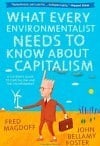Political Economy
The Mexican general elections of July 2006 produced an official result that some felt was “very typical of advanced democracies.” But this result defied Mexican political experience, resulting in a major legitimacy crisis. With over forty million voters turning out this time, the proclaimed winner of the presidency was Felipe Calderón, the rightwing National Action Party (PAN) candidate, who in the official count beat the center-left candidate of the Democratic Revolution Party (PRD), Andrés Manuel López Obrador, by 0.58 percent. Calderón took 35.89 percent of the vote while Obrador took 35.31 percent | more…

In Class Dismissed, John Marsh debunks a myth cherished by journalists, politicians, and economists: that growing poverty and inequality in the United States can be solved through education. Using sophisticated analysis combined with personal experience in the classroom, Marsh not only shows that education has little impact on poverty and inequality, but that our mistaken beliefs actively shape the way we structure our schools and what we teach in them. | more…

The focus of this book is the emerging economic confrontation between European and U.S. capitalism at the end of the “golden age” of capitalism in the late 1960s. Ernest Mandel here paints a remarkably clear, comprehensive, and detailed portrait of trends at that critical period. Mandel moves with ease from the most general international problems to the specifics of corporate activity, and few developments in the business and economic worlds seem to have escaped his attention. | more…
In January 2007 the Development, Concepts and Doctrine Centre of the UK Ministry of Defence published a ninety-page report, entitled Global Strategic Trends, 2007–2036, highlighting a wide array of potential dangers to the prevailing order over the next thirty years. The report is organized around three “Ring Road Issues”: (1) climate change, (2) globalization, and (3) global inequality (p. xiii). Global warming and the possibility of abrupt climate change, together with the end of “the golden age of cheap energy,” are seen as placing increasing strains on populations throughout the planet (p. 31). The globalization of the world economy, embodying “particularly ruthless laws of supply and demand,” is viewed as creating new interdependencies, contradictions, and conflicts. Expanding global inequality, the UK Ministry of Defence insists, could lead to “a resurgence of not only anti-capitalist ideologies . . . but also to populism and the revival of Marxism” (p. 3) | more…
egrettably, there are all too many candidates that qualify as imminent and very serious crises. Several should be high on everyone’s agenda of concern, because they pose literal threats to human survival: the increasing likelihood of a terminal nuclear war, and environmental disaster, which may not be too far removed. However, I would like to focus on narrower issues, those that are of greatest concern in the West right now. I will be speaking primarily of the United States, which I know best, and it is the most important case because of its enormous power. But as far as I can ascertain, Europe is not very different | more…
The most important promises used to justify capitalism are that your children will have a better life than you do, and in President Kennedy’s famous words, “a rising tide lifts all boats,” meaning everyone benefits from the accumulation of capital. These promises ring hollow in a period in which the relative position of the working people of the United States is declining and its ruling class is able to appropriate an increasing share of the national income. This pattern of accumulation and appropriation has become evident to many Americans and this awareness is beginning to affect political consciousness | more…
The South has already repaid its external debt to the North. Since the onset of the global debt crisis, precipitated in 1979 by a sharp increase in the Federal Reserve’s interest rates by Paul Volcker, the developing/ emerging market economies as a whole have paid in current dollars a cumulative $7.673 trillion in external debt service.1 However, during the same period their debt has increased from $618 billion in 1980 to $3.150 trillion in 2006, according to figures published by the International Monetary Fund (IMF). The external debt of this group of countries, comprising 145 member states, will continue to grow throughout 2007, according to the IMF, to more than $3.350 trillion. The debt of the Asian developing countries alone could rise to $955 billion. Although they have already repaid, in interest and capital, far more than the original amount due in 1980, these countries are now carrying a burden of debt much larger than they faced at the beginning of the period | more…
In mid-summer of 2006 a Harris Opinion poll revealed that roughly 50 percent of the U.S. public believed that weapons of mass destruction (WMD) had been found in Iraq by U.S. forces and nearly two-thirds of those polled thought that the Iraqi regime had been collaborating with al-Qaeda forces prior to the Washington invasion in the spring of 2003. All this, of course, stood in stark contrast to the facts as they were then known and grudgingly acknowledged by U.S. policymakers. At the same time, a large majority of the population believed that the invasion had been a mistake and favored significant troop withdrawals in the near future | more…
Steven H. Miles, M.D., Oath Betrayed: Torture, Medical Complicity, and the War on Terror (Random House, 2006), 240 pages, hardcover $23.95.
When he saw the pictures from Abu Ghraib, medical ethicist and practicing physician Steven Miles immediately wondered: Where were the doctors, nurses, and medics while these abuses were happening? | more…

There is a growing consensus that the planet is heading toward environmental catastrophe: climate change, ocean acidification, ozone depletion, global freshwater use, loss of biodiversity, and chemical pollution all threaten our future unless we act. What is less clear is how humanity should respond. The contemporary environmental movement is the site of many competing plans and prescriptions, and composed of a diverse set of actors, from militant activists to corporate chief executives. | more…
Recent attempts, however tentative, by Congressional Democrats to establish a timetable for the withdrawal of U.S. combat forces from Iraq should be looked upon as a victory for the antiwar movement. Not only is the Democratic Party clearly aware that its current congressional majority was the result of popular dissatisfaction with the war, but nationwide antiwar rallies have recently driven the point home. Under these circumstances, the Democrats had no choice but to challenge administration policy on the war. However, it would be a grave mistake to conclude from this that the political establishment in the United States is severely split on the question of imperialism, or that the Democratic Party is shifting towards a general anti-imperialist stance. Recent attempts, however tentative, by Congressional Democrats to establish a timetable for the withdrawal of U.S. combat forces from Iraq should be looked upon as a victory for the antiwar movement. Not only is the Democratic Party clearly aware that its current congressional majority was the result of popular dissatisfaction with the war, but nationwide antiwar rallies have recently driven the point home. Under these circumstances, the Democrats had no choice but to challenge administration policy on the war. However, it would be a grave mistake to conclude from this that the political establishment in the United States is severely split on the question of imperialism, or that the Democratic Party is shifting towards a general anti-imperialist stance | more…
Paul Baran’s Political Economy of Growth After Fifty Years
The concept of the imperialist world system in today predominant sense of the extreme economic exploitation of periphery by center, creating a widening gap between rich and poor countries, was largely absent from the classical Marxist critique of capitalism. Rather this view had its genesis in the 1950s, especially with the publication fifty years ago of Paul Baran’s Political Economy of Growth. Baran’s work helped inspire Marxist dependency and world system theories. But it was the new way of looking at imperialism that was the core of Baran’s contribution. A half-century later it is important to ask: What was this new approach and how did it differ from then prevailing notions? What further changes in our understanding of imperialism are now necessary in response to changed historical conditions since the mid-twentieth century? | more…


